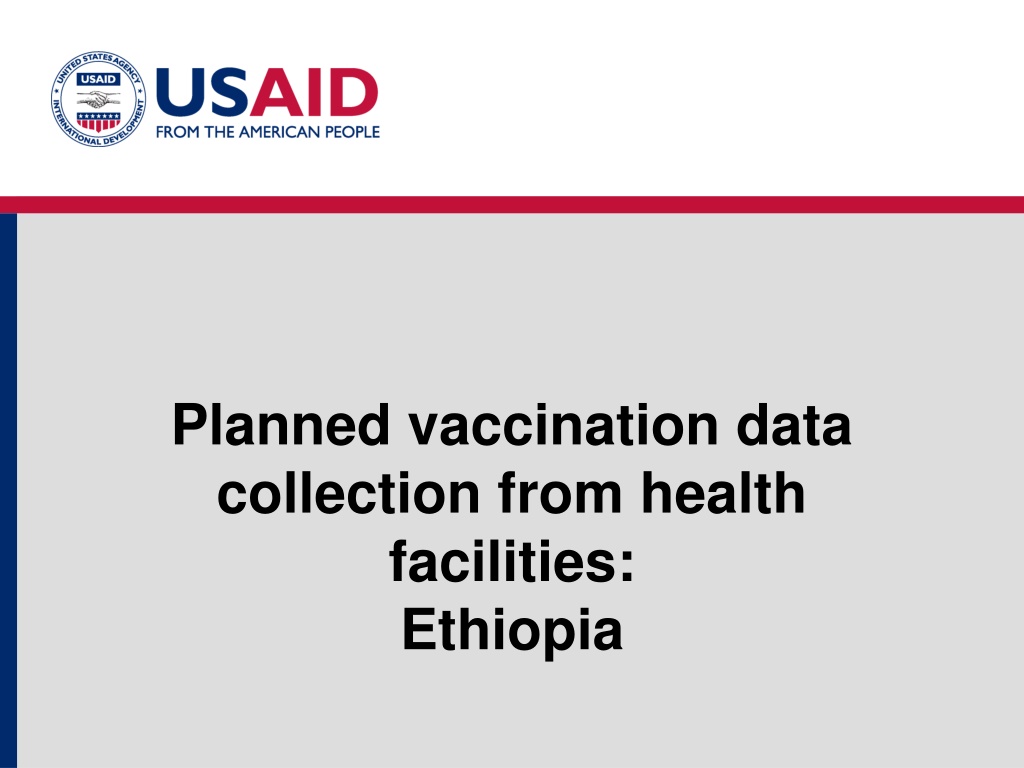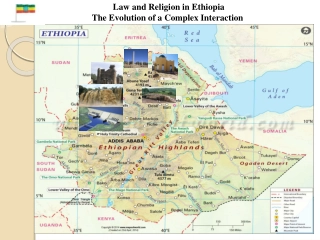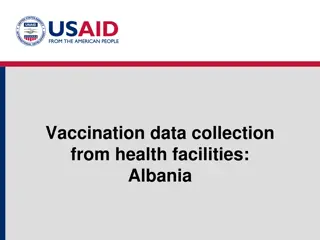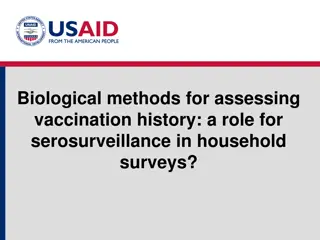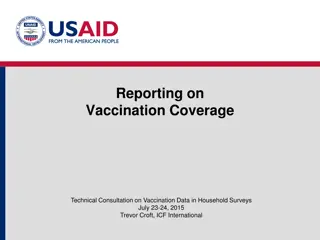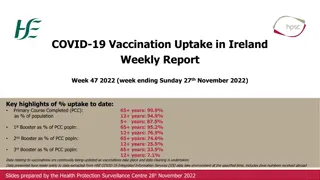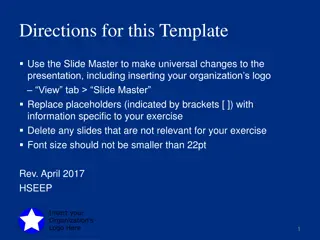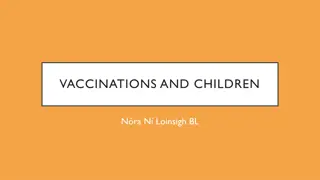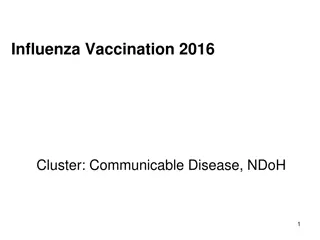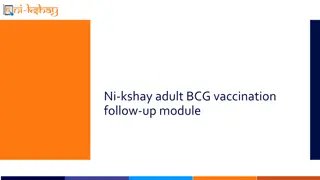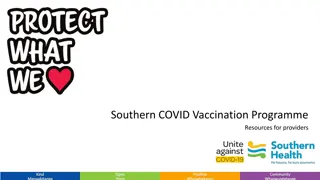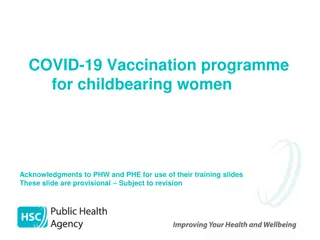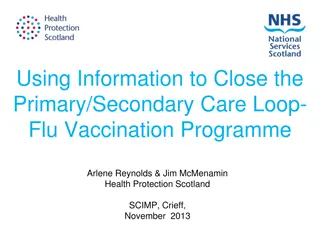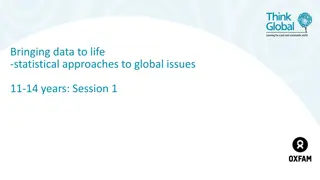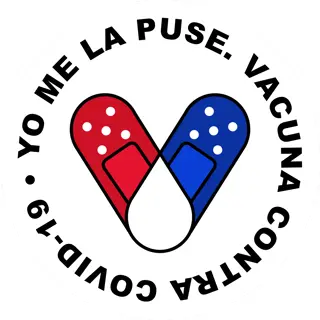Vaccination Data Collection and Health Care System in Ethiopia
Planned vaccination data collection is underway in health facilities in Ethiopia, with teams visiting Enumeration Areas and health centers to ensure children are vaccinated. The health care system in Ethiopia includes Health Centers at regional, zonal, and woreda levels, staffed with health officers, midwives, and nurses. Additionally, Health Extension Workers provide specific care at health posts on the kebele level. Data collection involves home-based records, mother's recall, and health center records. Challenges include variations in data recording practices across health centers.
Download Presentation

Please find below an Image/Link to download the presentation.
The content on the website is provided AS IS for your information and personal use only. It may not be sold, licensed, or shared on other websites without obtaining consent from the author. Download presentation by click this link. If you encounter any issues during the download, it is possible that the publisher has removed the file from their server.
E N D
Presentation Transcript
Planned vaccination data collection from health facilities: Ethiopia
Ethiopia DHS 2016 Will be conducted by Central Statistical Agency (CSA) Ethiopian Public Health Institute (EPHI) Data collection teams will visit each Enumeration Area (EA) selected for the survey A separate team (health facility team) will visit health centers or posts with names of children without vaccination cards identified during data collection.
Health care system in Ethiopia Health Centers Found at the regional, zonal and wareda level. Staffed with Health officers, Midwives, Nurses. A higher level of care with in-patients care; Unclear how many health personnel per health centers because of variations within the regions, zones, and waredas; A Wareda is responsible for a population of 15,000 to 25,000 individuals depending on the area.
Health care system in Ethiopia (Cont.) Health Posts Health Extension Workers (HEW) are responsible for providing very specific care in health posts at the kebele level (smallest administrative unit in Ethiopia). Two HEWs per Kebele, formally trained by MoH. Focus on immunization, family planning, and sometimes with delivery. Also responsible for referring patients to health centers.
Data collection Home-based records: Immunization cards/ child care cards; Polio0 and BCG cards (given at health centers); Mother s recall: Health centers and posts records: Child care cards (started in 2014) Family health book (started in 2014) Small registration book (older) Registration book (IGMRB)
Visits to four health centers Positive aspects Information on vaccination is routinely recorded in the registry book Challenges Information recorded in the registry book by the date of first visit All vaccination data recorded in a single line in the register Children s names are not always recorded Family book available since 2014 The mother s name is not always recorded HEWs are the source of information for the community System is not standardized across health centers or posts
Visit to a household In household In Health post DOB April 4, 2014 May 30, 2014 Shasho Zewdu Workitu Zewdu Child s name Aberash Girma No Available Mother s name Zewdu Aragaw Not Available Father s name
Key concerns Children can go to health centers and/or posts outside of their kebeles or woredas; A child can go to several sources for different vaccines; Information is not ordered logically by date of birth (DoB) or in alphabetical order. No standardization across health personnel. If vaccination is given at a health center or at another health post, the health personnel does not update the child care cards;
Key concerns (Cont.) Child care cards are kept with the HEW until vaccination is complete. Polio0 and BCG are not recorded in the child care cards because they are mostly given at health centers; Children are not given their official names until weeks sometimes months after they are born. It s very common to change children s names. Families seldom have official papers from the government with DOB.
